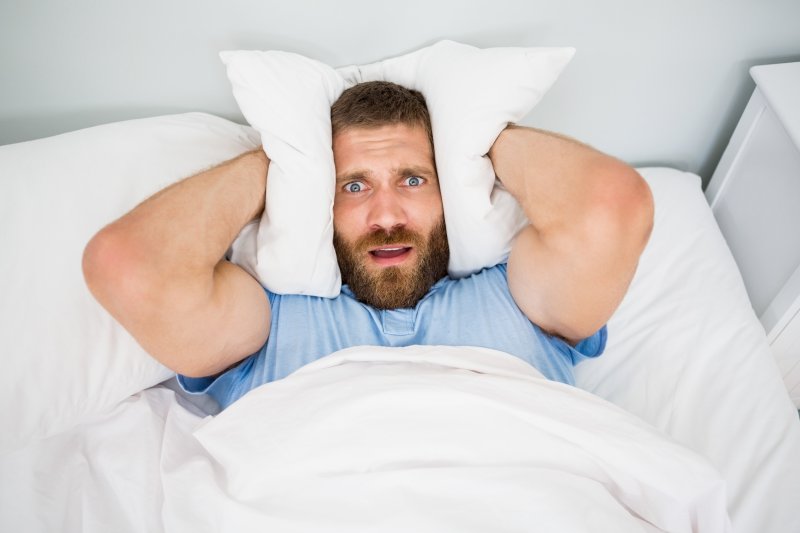
While earworms are (thankfully) not real worms, they’re still a nuisance. Oh, what are earworms? Well, they are those few song lyrics that play over and over in your head while you lay in bed—and they don’t just happen when we’re awake. As one researcher learned from personal experience, they can even happen while we’re sleeping!
Thanks to that same researcher’s curiosity, we now better understand what makes earworms tick and how to get rid of them.
The Study
Dr. Michael Scullin is like any of us—he sometimes listens to music before hitting the hay. Over time, he began to pick up on a specific phenomenon…he was waking up in the middle of the night with a song stuck in his head.
Instead of becoming frustrated and accepting defeat, Scullin took this as an opportunity to better understand music’s impact on our sleep.
Dr. Scullin’s study consisted of a survey component and a laboratory component. For the survey, Scullin’s team had 209 participants answer questions on their sleep quality, music listening habits, and how often they experienced earworms at different times during their sleep cycle (pre-sleep, during sleep, and post-sleep).
For the laboratory study, researchers brought 50 participants into a lab, where they then attempted to induce earworms. The three songs chosen? Taylor Swift’s “Shake it Off,” Carly Rae Jepson’s “Call Me Maybe,” and Journey’s “Don’t Stop Believin’.” Participants were randomly assigned one of the three songs and then in a similar manner given either the original or an instrumental version. During the final portion of the study, participants responded when they experienced an earworm (researchers also used polysomnography to track their brain waves, heart rate, breathing, and more while they slept).
The Results
The results from the study showed that people who caught an earworm had greater difficulty falling asleep, staying asleep, and experienced reduced sleep quality.
Surprisingly, the instrumental versions of the songs resulted in twice as many earworms as the lyrical versions, and worse sleep quality.
Ultimately, this research showed that people who listen to music before bedtime experience persistent earworms and a consequential decline in sleep quality.
What This Means For You
The results of this study point to the brain processing music well after it stops. In fact, the brain can process music for several hours. This contradicts what health organizations have been saying for years—that listening to soft, instrumental music before bed can help us fall asleep.
Dr. Scullin recommends that individuals moderate music listening throughout the day, but especially right before bedtime. He suggests that listening to music while lying in bed can be especially damaging, as this causes the brain to associate our bed with music versus falling asleep.
Instead of listening to music right before bed, Dr. Scullin suggests focusing on a task or activity, such as writing out a to-do list, reading a book (not on a screen), or journaling. It’s important to not substitute music for screen time or take part in a moderate or vigorous activity like running—both of which can negatively impact sleep.
A Better Way to Counter Poor Sleep
If you regularly get poor sleep, you might have turned to music as a way to help—this study shows why that might not have been the best solution to your problem. For many, simply changing up their bedtime routine can make a big difference, but for those with sleep apnea, simply stopping the music at night won’t make such a significant impact.
When it comes to dealing with a sleep disorder, the only effective method is treatment from a professional. Of course, to determine whether or not you have a disorder like sleep apnea in the first place, you need a diagnosis, which you can start getting with a consultation by Dr. Jeff Rodgers. He can determine your risk for sleep apnea, provide a custom-made oral appliance that will help you breathe better throughout the night, and make sure you’re well-rested so that you’re able to enjoy whatever music you choose to listen to (not right before bed, of course!)
To schedule this consultation, click here.
